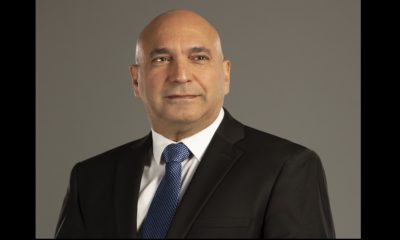The following extracts from two separate articles published two days apart last year in the Jamaican media provides an interesting insight into how the companies where viewing their respective market entry strategies.
 The first is from a more expansive article titled Digicel looks to expand beyond its 32 markets written by Al Edwards and published in the Jamaica Observer newspaper on Friday, June 25, 2010 provides an interesting insight into Digicel Group thinking and strategy on Central America.
The first is from a more expansive article titled Digicel looks to expand beyond its 32 markets written by Al Edwards and published in the Jamaica Observer newspaper on Friday, June 25, 2010 provides an interesting insight into Digicel Group thinking and strategy on Central America.
Digicel looks to expand beyond its 32 markets
It was thought particularly daring to go into the markets which are traditionally considered the backyard of Carlos Slim’s America Movil. Such is Digicel’s confidence and its ability to create market share relatively quickly, that Central America was earmarked as a revenue centre where it could effectively compete and surpass existing players much to the chagrin of one of the world’s richest men, Carlos Slim. But as they say, ‘No guts, no glory.’
Digicel now has a presence in El Salvador, Honduras and Panama and is doing well in those markets. Delves says Honduras has proved particularly challenging largely because of the economic situation and the military coup there last year. Things have stabilised in that country and Digicel has managed to grow its subscriber base by 46 per cent in Honduras, moving from 1.1 million to 1.6 million customers in the last 12 months.
Digicel’s CEO commented: “Our hope for Honduras is that the economy will improve over the course of the next 12 months. We are beginning to see the green shoots appearing. Remittances are starting to improve and foreign aid is now coming in again following the embargo.
“Panama is going great and we have 600,000 customers there. We have become profitable there ahead of schedule. BlackBerry has been a huge success there for us. Panama City is very developed and is sophisticated. It is a bit like Manhattan with high-rise buildings so you have to get your network coverage right there. It is a US dollar-based stable economy. With the second canal being built, there is an influx of investment which augurs well for further growth.
We launched in December, five months ahead of America Movil and that was very important. We managed to introduce widespread BlackBerry usage and data in Panama and that has paid off for us. We are number three in that market and making good progress. In Honduras there are four players in that market and we are already number two after launching there in November 2008. We are ahead of America Movil there. In fact, in all our markets we are ahead of America Movil.
When we first went into El Salvador, we had 108,000 customers. Today we have over a million and we are number two in that market as well. Incidentally we entered El Salvador via an acquisition. We feel it is important to be either one or two in every market and that is what we are achieving.
“Cuba is a potential market for us but I can’t see that happening in the immediate near term. That will be a very interesting market for us but that obviously depends on the government. It will decide when it is appropriate to open up the market to competition. If it does we certainly will be very interested,” said Delves. The Cuban authorities may well be more accommodating to a Caribbean telecoms company than an American one, and Digicel does have a good working relationship with technical personnel there.

Carlos_Slim_Helú - founder and chariman CLARO
The second article should be viewed and compared within the context of AMX thinking and strategy for entering the Jamaican market. AMX is reported to have said in an article published two days before the Digicel story on Wednesday, June 23, 2010 entitled Claro grows by another 100k in March Q, that it “expects the acquisition of Oceanic Digital Jamaica Limited (operating as Claro in Jamaica) to contribute to its strategy of becoming the leading wireless communication provider in Latin America”.
The article went further to say that: “America Movil (AMX) — Claro Jamaica’s Mexican parent — said that its subscriber base in Jamaica jumped 25 per cent in the first quarter of 2010, or by 100,000 to 500,000. Oceanic Digital Jamaica Limited, or “Oceanic,” provides wireless and value added services throughout Jamaica, with 0.5 million wireless subscribers as of March 31, 2010,” said a filing by AMX to the US Securities and Exchange Commission (SEC). In March, the Mexican firm had declared its Jamaican operation had 0.4 million subscribers at the end of December 2009.”
It should be viewed and compared within the context of AMX thinking and strategy for entering the Jamaican market. AMX is reported to have said in an article published two days before the Digicel story on Wednesday, June 23, 2010 entitled Claro grows by another 100k in March Q, that it “expects the acquisition of Oceanic Digital Jamaica Limited (operating as Claro in Jamaica) to contribute to its strategy of becoming the leading wireless communication provider in Latin America”.
The article went further to say that: “America Movil (AMX) — Claro Jamaica’s Mexican parent — said that its subscriber base in Jamaica jumped 25 per cent in the first quarter of 2010, or by 100,000 to 500,000. Oceanic Digital Jamaica Limited, or “Oceanic,” provides wireless and value added services throughout Jamaica, with 0.5 million wireless subscribers as of March 31, 2010,” said a filing by AMX to the US Securities and Exchange Commission (SEC). In March, the Mexican firm had declared its Jamaican operation had 0.4 million subscribers at the end of December 2009.”

 Businessuite Markets2 weeks ago
Businessuite Markets2 weeks ago
 Businessuite News242 weeks ago
Businessuite News242 weeks ago
 Leadership Conversations6 days ago
Leadership Conversations6 days ago
 Businessuite Markets2 weeks ago
Businessuite Markets2 weeks ago
 Logistics & Transportation2 weeks ago
Logistics & Transportation2 weeks ago
 Businessuite Markets2 weeks ago
Businessuite Markets2 weeks ago
 Businessuite News24 International3 weeks ago
Businessuite News24 International3 weeks ago
 Businessuite Markets2 weeks ago
Businessuite Markets2 weeks ago










